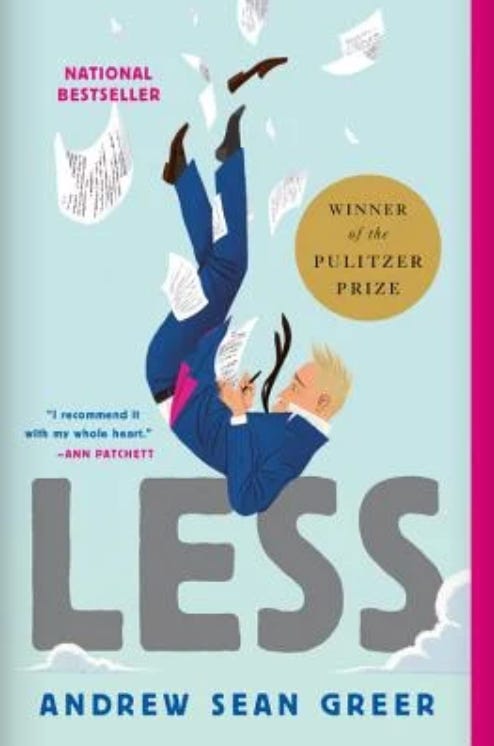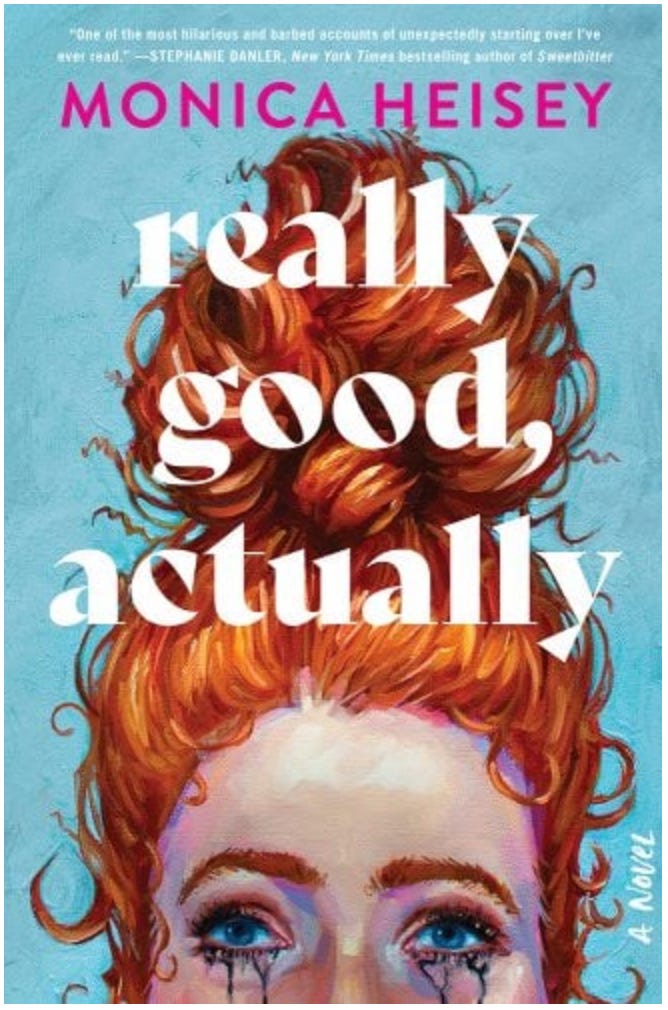As a reader, I am committed to/obsessed with small presses and literature in translation. I am a lover of gloriously plotless wanderings, lonely tales of people in foreign places, novels about the futility of love, accounts of, say, an ex-lover’s tortured party, hybrid memoirs, Sicilian detective novels, depressing Irish shit (and Russian shit and Norwegian shit), audacious/weird essays, and more.
But I also feel the need to keep up with more commercial books. Not just to know which ones are selling like hotcakes, but to actually read them. Do I need to feel a part of the zeitgeist? Know what editors are buying? Be better able to complain about mainstream publishing? Is it because sometimes the books that are marketed as middling are actually really good? Do I enjoy reading the ones everyone said were really good and discovering that they are actually mediocre? I don’t know. But the older I get, the less time I have on earth, the more annoying I find this habit of mine. It makes me feel forever behind on a project I’m not sure I want to be doing.
This month I felt the need to “catch up” by reading a few books that got a lot of attention but that I’d “missed.” It was a mixed bag.




Two books I thought I might love but didn’t:
Intimacies by Katie Kitamura, which I thought successfully created a tense atmosphere but didn’t make much of interest happen there. The war criminal who took a special interest in the interpreter-narrator reminded me of The Silence of the Lambs — looking evil in the face, etc — and it didn’t do much for me. This book was lauded and I liked it alright, I just didn’t find it special. Though I did love Kitamura’s first book, A Separation—I adore a psychological novel about a spouse going missing.
Nightbitch by Rachel Yoder, which has a fantastic cover and a wild, Kafka-derived premise: exhausted mother of a toddler is convinced she’s turning into a dog. But in spite of the promise of novelty, the novel just recycles the same pat new-mom stuff that’s everywhere: the kid throwing food on the floor, the blond, perfect mother at play group, the frustrated erstwhile artist mom now without ideas thinking why can’t I just be like the rest of them and fit in? But we have enough of these books and movies now to know that no one thinks they fit in! I feel it’s time to collectively push through and say something else. Or even just give the alienation more nuance. Also, the husbands in these novels always suck but the narrators defend them and I find it depressing, like even purported critiques of the heteronormative family must still defensively emphasize that actually, he’s a really nice guy. He’s on a semi-permanent business trip, doesn’t take the narrator’s work seriously, and doesn’t notice her anguish (or in this case, the fact that she’s literally transforming into a canine before his eyes), but he’s nice!
A couple I did love:
Less by Andrew Sean Greer, which won the Pulitzer in 2018. A very, very funny (I laughed out loud on an airplane) book about heartache, self-pity, novel writing, and gay galavanting set against the backdrop of a succession of global cities. Silly at times but exceedingly good company. There’s a sequel and I will definitely be reading it.
Animal by Lisa Taddeo, which is one of the very few books I would actually call a tour de force. Unrelenting, dark as fuck, profoundly perceptive and absolutely savage when it comes to men, women, sex, and power. Very closely reflects my often stark view of these things, so I found it comforting. (I’ve always been amazed that some women don’t see things this way.) There’s something satisfying about taking in this grim worldview drawn so beautifully here, even though the book is a bit insane. I had to write to the author as soon as I finished it.


And two novels I thought would be very light fare but were actually super smart and engaging:
Really Good, Actually by Monica Heisey is just that — and I appreciate the title for cleverly containing this truth. It’s the kind of book that doesn’t pretend to be more or different than it is. It is a Bridget Jones-style heroine’s journey from hope (matrimony) through disillusionment (divorce) and toward peace (independence). Heisey is so funny and this is ultra-current, impressively nimble writing that invites the reader all the way in. I knew I wanted to include this one in the newsletter and I left myself one note about it but when I looked at the note it just said: “dessert yogurts.” Apparently there is a funny mention of these in the book.
[I wish the cover didn’t look like Are You There God, It’s Me, Margaret or something, I really feel this one deserved better.]
We All Want Impossible Things by Catherine Newman: Another boisterous, clever novel with oddball characters. Though this one is very sad, a kind of Beaches for the new millennium. A woman in her forties ministers lovingly to her best friend who is dying of cancer (not a spoiler, it’s in the jacket copy). It’s about the primacy of female friendship and how extreme life gets when it brushes up against death. This would be a good beach read if you don’t mind getting sad at the beach.
I’m onto some new good books:
So, you know, stay tuned. Happy reading! 📚
(The painting is by Olga Cree.)






just borrowed your recs on the Libby app!